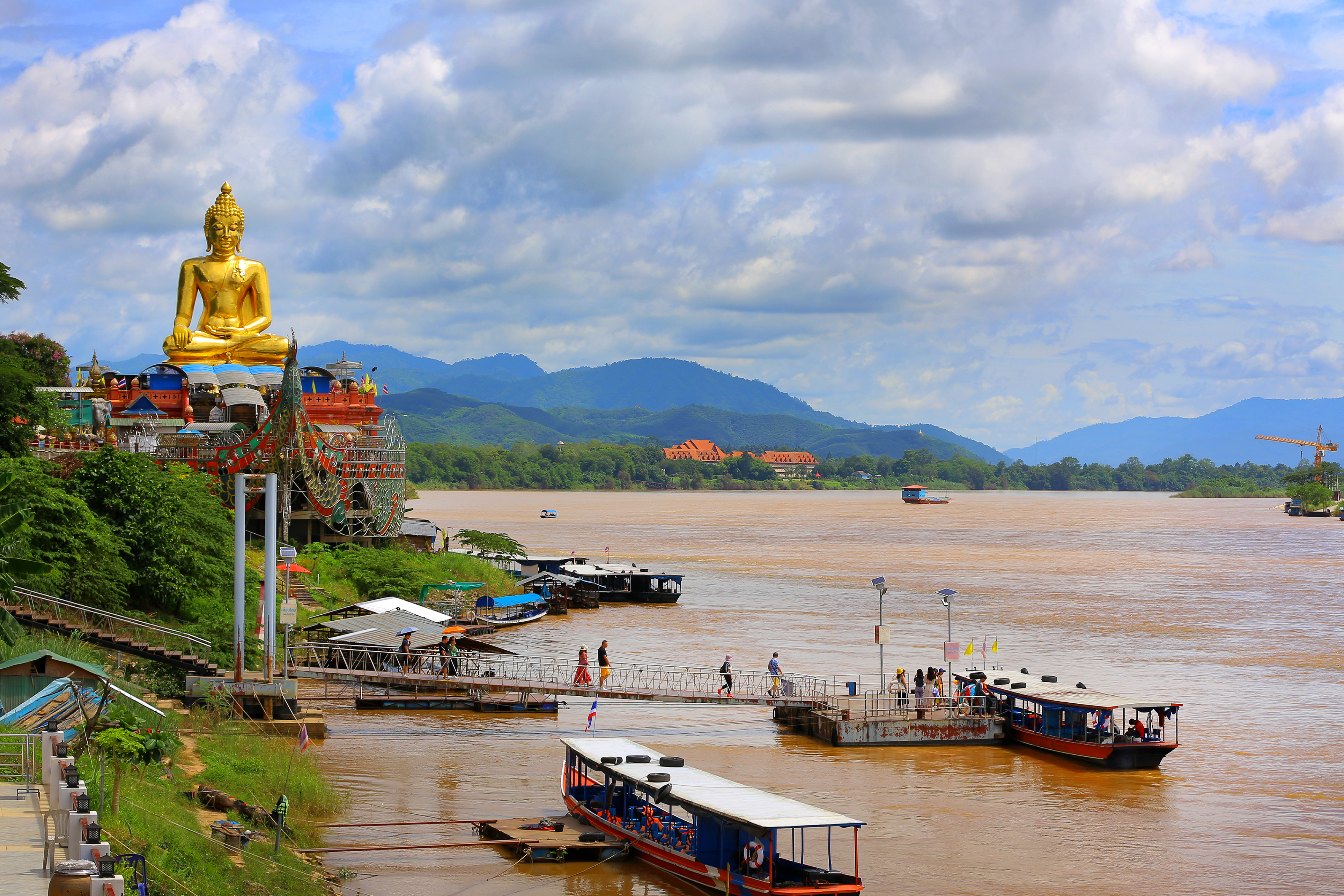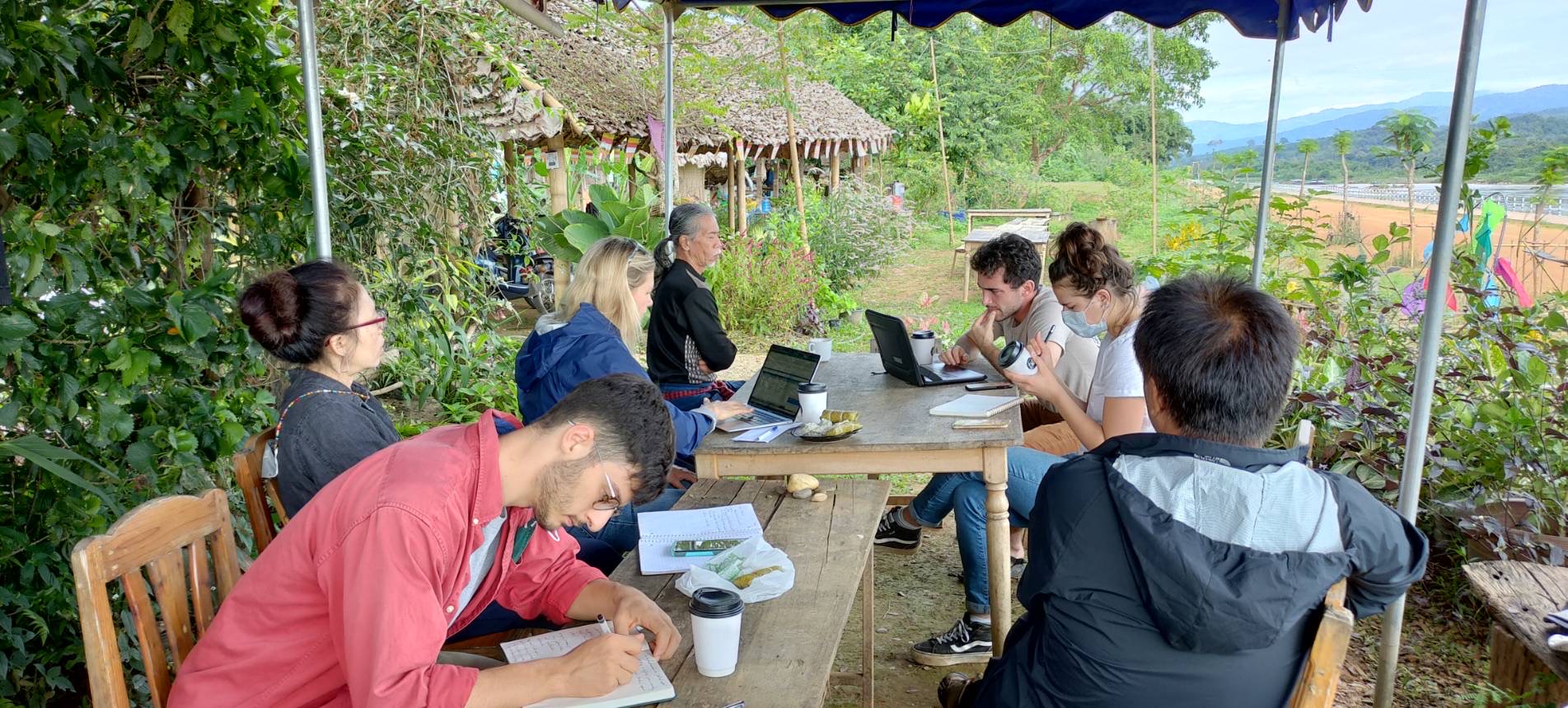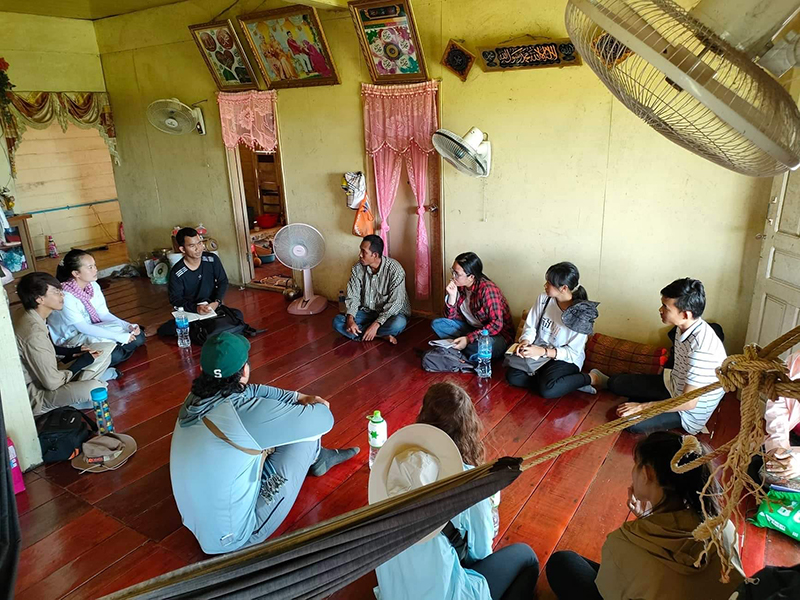Why Mekong
Culture WELL?
- Freshwater justice is central to forging inclusive futures for everyone
- Flowing through five countries, the struggle for a vital Mekong is a global struggle
- 60+ million people in Laos, Myanmar, Thailand, Cambodia and Vietnam depend on the Lower Mekong River
- The Mekong nurtures and feeds diverse cultures, communities, environments and economies
- Mekong livelihoods and ecologies are impacted by global warming, dams and industrialization
- Local and global food security are imperiled
Explore the Links between Cultural Diversity and Ecological Diversity
ECHOES of the EARTH
Following JMC graduates contributions by JMC graduates. Footage donated by Internationally renowned filmmaker Kalyanee Mam.
Myrah Beverly
(CCP 2022)
Owen Wesorick
(CCP 2022)
Garrett Boudreaux
(MSU, Film 2022)
Participating students will:
- Conduct immersive field research in ecology, cultural studies and interdisciplinary environmental studies
- Study the impact of climate change, damming and industrialization on livelihoods and ecosystems
- Use multimedia storytelling to show changing life on the Mekong River
- Build waterjustice solidarities with students, environmental justice activists and artists in Michigan and Southeast Asia

Support global sustainability and partner with Indigenous solidarity networks in the Lower Mekong Delta Region. Engage with leading cultural, state, and civic entities including





Leading the Lab
Amanda Flaim
Mekong Culture WELL Director, Assistant Professor James Madison College and Department of Sociology
flaim@msu.edu
“The Mekong River sustains livelihoods and food production across Southeast Asia and, indeed, across the global food system. Therefore, political and ecological threats to the life of the Mekong constitute an issue of pressing global concern…. The need for truly collaborative, inclusive, and interdisciplinary research, education, and outreach is urgent…”

“
...Living in or visiting a landscape continuously defined by ecological destruction for the sake of capital gains makes it difficult to live well with one’s neighbors, be they human, tree or lake…I firmly believe I’ve started to grow closer to my home [in the UP] and contribute to its healing because I lived as a visitor in Northern Thailand.”
Solomon Kronberg
Comparative Cultures and Politics (CCP) ‘22READ MORE
“
Residing on houseboats on (Tonle Sap) Lake, we spent four days conducting interviews [in Khmer language] with area residents, both those who lived on the water and those who lived on land, in order to gain an understanding of how political, ecological and climate change was affecting their livelihoods…the conversations we had and the obstacles we encountered as we tried to understand peoples’ stories and impressions pushed us to learn in new and different ways…”
Shimon Likhtman
Social Relations and Policy (SRP) ‘22READ MORE


